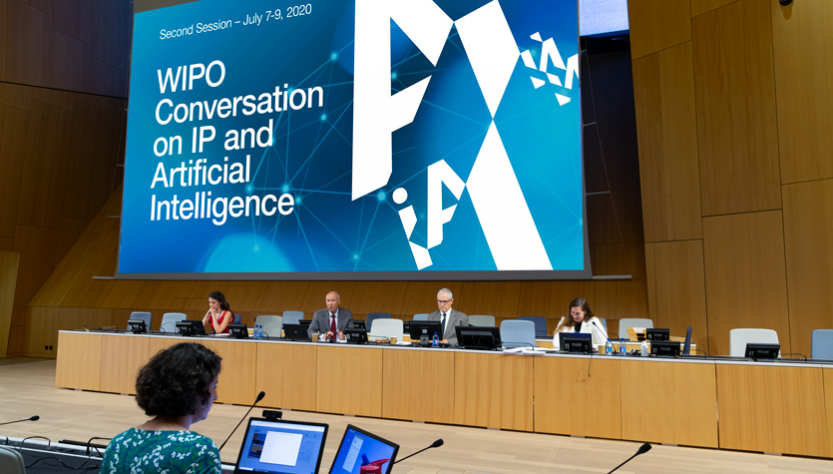Geneva-The World Intellectual Property Organization (WIPO) today ended its Second Session of the Conversation on Intellectual Property (IP) and Artificial Intelligence (AI), with Director General Francis Gurry outlining the next steps in a process designed to help clarify the most-pressing IP policy-related questions in the dynamic and fast-growing field of AI.
In closing the meeting, Mr. Gurry said that WIPO will continue to foster dialogue by publishing on its web site all written interventions received within two weeks following the meeting’s closure and hold a Third Session of the Conversation on AI and IP at a later date in 2020. The WIPO Secretariat will also begin working on outlining preliminary considerations stemming from the many questions raised by AI for IP policy for the consideration of member states and other stakeholders. During the proceedings, Mr. Gurry said the Secretariat would study a member state delegate’s suggestion to develop a priority list of questions on the IP-AI topic.
In view of the COVID-19 pandemic, the second instalment of the conversation was held as a virtual meeting from July 7-9, 2020. Over 2,000 people from 130 countries, including representatives of member states, academic, scientific and private organizations, followed the deliberations. More than 50 speakers from a diverse range of organizations spoke during the meeting, underlining the timeliness and magnitude of the discussion on IP and AI. The Conversation was chaired by Ambassador François Rivasseau, Permanent Representative of France to the United Nations and other International Organizations in Geneva.
“The engagement in this second session of the Conversation on IP and AI by such a large and diverse audience shows the wide understanding of the importance of dialogue on AI and IP to encourage the future of creativity and innovation, even amid the economic uncertainty resulting from the COVID-19 pandemic and a rapidly digitalizing world,” said Mr. Gurry. “Even as international attention is rightly focused on moving beyond the pandemic, it is wonderful that so many in the IP community have convened again to evaluate the eventual impacts of AI on policy related to intellectual property, which has grown over the years into a major driver of economic growth.”
Background: IP and AI
Mr. Gurry convened the First Session of the WIPO Conversation on IP and AI in September 2019, bringing together member states and other stakeholders in an open forum to discuss the impact of Al on IP policy.
WIPO subsequently developed for public consultation a compendium of the most-pressing questions likely to face IP policy makers from the impact of Al on IP policy. The paper received more than 250 submissions and comments from a wide global audience.
A Revised Issues Paper was published in May 2020 taking into account the comments and forming the basis of the Second Session of the Conversation held this week.
AI is increasingly driving important developments in technology and business. It is being employed across a range of industries, from telecommunications to autonomous vehicles.
Increasing stores of big data and advances in affordable high computing power are fueling AI’s growth. AI has a significant impact on the creation, production and distribution of economic and cultural goods and services. Since one of the main aims of the IP system is to stimulate innovation and creativity in the economic and cultural systems, AI intersects with IP in a number of ways.
In January 2019, WIPO issued a study that surveyed the landscape of AI innovation. The “WIPO Technology Trends” report provides a common information base on AI for policy and decision makers in government and business, as well as concerned citizens across the globe.
WIPO then spearheaded the series of consultations with member states and other stakeholders to better understand the intersection between IP policy and AI.


